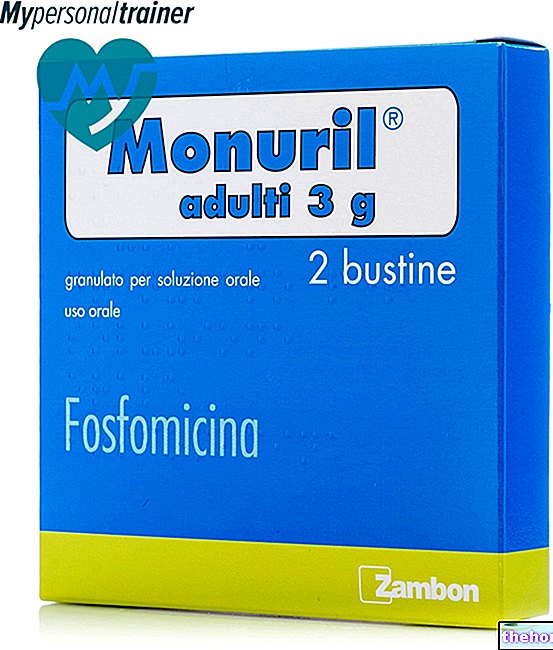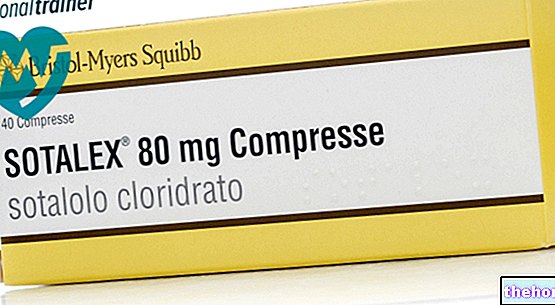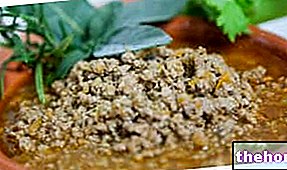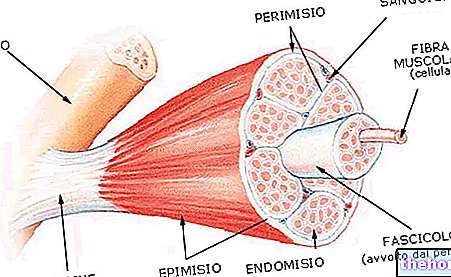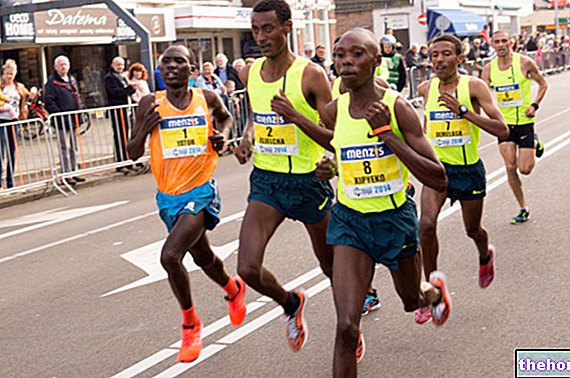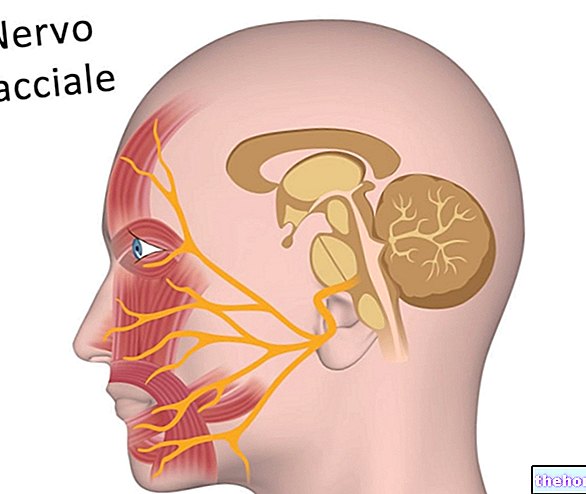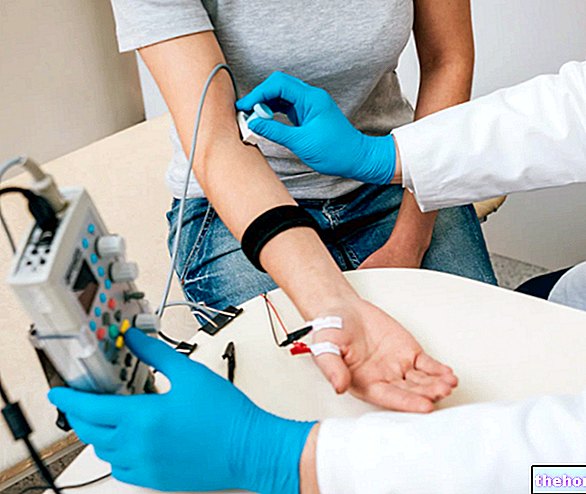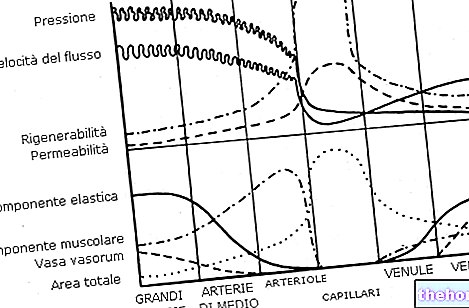Generality
Gastrectomy is the surgical removal of the stomach or part of it.
Performable with a traditional surgical procedure or laparoscopy, gastrectomy is essential for the treatment of stomach cancer and could also be useful in case of obesity.
There are several types of gastrectomy: total, partial, sleeve and with removal of the esophagus.
After the operation, the patient remains hospitalized for 1-2 weeks and is required to radically change the way he eats.
If the gastrectomy is performed at the right time and if the doctor's instructions are followed, the results of the operation can be positive.
What is gastrectomy?
Gastrectomy is a surgical procedure aimed at removing the stomach or part of it.
BRIEF ANATOMICAL REVIEW ON THE "DIGESTIVE SYSTEM

Located between the esophagus and the small intestine (or small intestine), it is separated from the former by a valve called the cardia and from the latter by a valve called the pylorus.
MAIN TYPES OF GASTRECTOMY
Depending on the amount of stomach removed, gastrectomy takes on a different specific name, which refers to the portion of the organ removed.
Therefore, the following types of gastrectomy exist:
- Total gastrectomy, where the surgeon removes the entire stomach.
- Partial gastrectomy, where the surgeon removes the lower part of the stomach.
- Sleeve gastrectomy, where the surgeon removes the left side of the stomach.
- Esophagogastrectomy, where the surgeon removes the upper part of the stomach and part of the esophagus.
When you do
Gastrectomy is performed mainly in the case of malignant stomach cancer (or stomach cancer), but may also be necessary in the presence of obesity (see bariatric surgery), esophageal cancer, severe stomach ulcers and benign stomach tumors.
MALIGNANT CANCER IN THE STOMACH
Stomach malignant tumors are severe tumors, very metastasizing and difficult to treat with chemotherapy and / or radiotherapy.
Therefore, they almost always require surgical removal of the entire diseased organ (total gastrectomy).
The rare cases of stomach cancer cured by partial gastrectomy are explained by the fact that the malignant tumor has formed in the lower part of the stomach and has not yet spread elsewhere.
SERIOUS OBESITY €
The operation of gastrectomy - and precisely of sleeve gastrectomy - is indispensable for treating obesity when
- this morbid condition puts those affected by it in serious danger;
- all possible non-invasive treatments have been tried without success.
By removing a section of the stomach, one wants to reduce the amount of food an individual can introduce with a meal.
ESOPHAGUS CANCER
Tumors of the esophagus, located between the esophagus and stomach, are usually treated with an esophagogastrectomy.
GASTRIC ULCER
Today, the treatment of gastric ulcers is almost always pharmacological.
However, in some rare cases the drugs are not very effective and, with the progressive worsening of the stomach health, a gastrectomy is necessary.
BENIGN TUMOR OF THE STOMACH
Benign stomach tumors require partial or full gastrectomy for entirely precautionary reasons. In fact, a benign stomach tumor could have a fair chance of developing into a malignant stomach tumor.
Risks and complications
Like any surgical operation, gastrectomy can involve complications, in this specific case:
- Internal bleeding
- Infections
- Formation of blood clots in the veins
- Stroke or heart attack during the operation
- Allergic reaction to anesthetic drugs or sedatives used during the surgery
Furthermore, since it affects a delicate and "vitally important structure such as the stomach," there is a risk of:
- Reduction of the absorption capacity of vitamins. Many types of vitamins - in particular vitamin B12 and fat-soluble vitamins - are absorbed from food also thanks to the activity of the stomach. Clearly, the total removal of the stomach causes this absorption to fail. The absence or severe deficiency of these vitamins can cause:
- Anemia, as vitamin B12 is essential for the production of blood cells.
- Infection vulnerability, as vitamin C is a fundamental element for strengthening the immune system.
- Bone weakening and, in the most serious cases, osteoporosis, as Vitamin D is essential for good bone health.
- Pathological decrease in body weight. It is dangerous for cancer cases and is due to the fact that the patient feels full after even a small meal, therefore not eating enough.
- Rapid emptying syndrome. If the stomach is missing or a good part of it, the ingested foods arrive in the intestine only partially digested. This has several consequences, including hypotension, nausea, vomiting, abdominal cramps and abdominal bloating.
- Episodes of morning vomiting.
- Diarrhea.
- Acid reflux, typical of sleeve gastrectomy.
- Bowel obstruction. It is a characteristic complication of gastrectomy procedures for the treatment of malignant tumors.
- Leaks (of food) where the stomach resection occurred, although these points were properly sutured and sealed.
Preparation
Gastrectomy is a surgical procedure that requires general anesthesia. Therefore, before its execution, the individual to be operated on must be subjected to the following clinical checks:
- Thorough physical examination
- Complete blood test
- Electrocardiogram
- Evaluation of the clinical history (diseases suffered in the past, any allergies to anesthetic drugs, medicines taken at the time of checks, etc.).
If no contraindications of any kind emerge, the operating surgeon (or a member of his staff) will illustrate the procedures, the possible risks, the pre- and post-operative recommendations and, finally, the recovery times.
Main pre- and post-operative recommendations:
- Before gastrectomy, stop any treatment based on antiplatelet agents (aspirin), anticoagulants (warfarin) and anti-inflammatory drugs (NSAIDs), because these drugs, by reducing the blood's clotting capacity, predispose to severe bleeding.
- On the day of the procedure, go on a complete fast for at least the previous evening.
- After the surgery, be assisted by a trusted person.
Procedure
Gastrectomy can be performed with a traditional surgery (also called "open") or with a laparoscopic surgery (or laparoscopic surgery).
In the first case, the surgeon makes an "incision of several centimeters at the level of the abdomen and, from the opening thus created, extracts all or only part of the diseased stomach; in the second case, however, he makes (always on the abdomen) three small incisions of about one centimeter, through which he introduces the surgical instrumentation (laparoscope, etc.) and extracts the diseased stomach.
Obviously, both traditional surgery and laparoscopic surgery allow the removal of all tissues (lymph nodes, neighboring organs, etc.) affected by primary cancer.
Laparoscopic gastrectomy
- It is ideal for tumors, because it allows you to best remove all the organs and tissues (in addition to the stomach) affected by cancer
- It is highly accurate
- It is minimally invasive
- It has shorter healing times
- Shorter hospitalization
- It is very invasive
- It has longer healing times
- By observing your operations on a monitor and not directly on site, the surgeon could inadvertently damage some organ adjacent to the stomach
TOTAL GATRECTOMY
The total removal of the stomach requires the connection of the esophagus to the small intestine, in order to recreate a passageway for the ingested food. The connection requires the application of a sort of sutures, which, in the most unfortunate cases, they may not completely seal the two digestive compartments and lead to complications (loss of food).

From the site: digestive-motility.com
PARTIAL GASTRECTOMY
The partial removal of the stomach, precisely of its lower part, requires the connection of what remains (the upper part) with the small intestine. As in the previous case, the sealing could be inadequate and lead to loss of food from the digestive compartments. not joined in a natural way.
SLEEVE GASTRECTOMY
During a sleeve gastrectomy, the surgeon removes the left side of the stomach - in particular the so-called "bottom" and a large part of the region called the "body" - and the sealing of what remains.

Figure: sleeve gastrectomy is usually done with laparoscopic surgery.
From the site: nuffieldhealth.comAt the end of the operation, the stomach volume is reduced by a good 75% (N.B: when fasting, the stomach capacity of a healthy person measures about 500 mL; after a sleeve gastrectomy, it is reduced to 120 mL).
Sealing may not be effective and food may leak in some places.
ESOPHAGOGASTRECTOMY
Similar to previous types of gastrectomy, after removing the upper stomach and part of the esophagus, the surgeon rejoins what's left of the stomach with what's left of the esophagus. The seal may not be fully airtight.
Post-operative phase
At the end of the gastrectomy, a hospitalization period of one or two weeks is foreseen, depending on the reasons for the intervention.
Immediately after the operation and for at least a couple of days, the patient undergoes surgical drainage (to remove excess fluids contained in the digestive system and what remains of the stomach) and intravenous nutrition (or gastrostomy).
It is likely that regular painkillers are needed and that meals are very light for at least a couple of weeks.
DIET
After a gastrectomy it is important for the patient to adapt to a new diet, which must be:
- Characterized by always contained meals.
- Initially free of foods rich in fiber (whole grains, legumes, vegetables, etc.).
- Rich in vitamins and minerals. In the case of total gastrectomy, vitamin and mineral supplements are indispensable.
Results
Studies have shown that:
- For the removal of malignant stomach tumors at an early stage, the 5-year survival rate after surgery is 85%. Obviously, this value is lower (30%) for malignant tumors removed at an advanced stage.
- In the case of patients suffering from obesity, they manage to lose up to 75% of their excess weight.
Therefore, if performed at the right time (in the case of stomach cancer) or if it is followed by a balanced diet (in the case of obesity), gastrectomy can also have good results.









